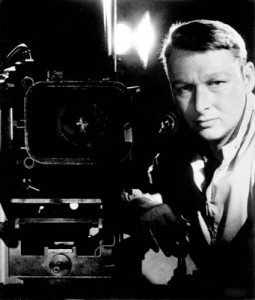 Just as I was sitting down yesterday morning to write my review of A Delicate Balance, I got a call from The Wall Street Journal telling me that Mike Nichols had died and asking if I could also write his obituary—right now. I took a very deep breath, quickly looked up a couple of favorite anecdotes, and went to work. The results were posted last night on the Journal‘s website:
Just as I was sitting down yesterday morning to write my review of A Delicate Balance, I got a call from The Wall Street Journal telling me that Mike Nichols had died and asking if I could also write his obituary—right now. I took a very deep breath, quickly looked up a couple of favorite anecdotes, and went to work. The results were posted last night on the Journal‘s website:
It hardly seems that Mike Nichols is dead—not just because he lived so long and productive a life, but because the work continued to pour out of him all the way to the finish line. Just last year he directed a Broadway revival of Harold Pinter’s “Betrayal.” There seemed no end to his burgeoning vitality. The shape of his career tells you everything about the unstoppable inner force that pushed him forward: He started out as a standup comedian and ended up one of a handful of directors to have won equal fame on Broadway and in Hollywood. “If you’re in any contest at all where you can win or lose, try to win,” Nichols told André Previn. He usually won. He bagged a best-director Oscar, two best-director Emmys, seven best-director Tonys—and in 1961, a Grammy for best comedy album of the year.
It isn’t hard to figure out what made Nichols so competitive. Born in Berlin in 1931, he got out of Germany at the age of seven, mere steps ahead of the Holocaust. After that, nobody had to tell him that Jews got no favors. Characteristically, he claimed that it was an advantage. “The thing about being an outsider,” he said in 2012, “is that it teaches you to hear what people are thinking because you’re constantly looking for the people who just don’t give a damn.”
Nichols made his name in the Fifties by improvising supremely sharp-witted comedy routines with Elaine May. The lightning-quick timing that he cultivated on nightclub stages served him well when he took up directing in 1963. During a rehearsal for the Broadway premiere of Neil Simon’s “The Odd Couple,” he got into a shouting match with Walter Matthau. “You’re emasculating me!” the actor shouted. “Give me back my balls!” “Certainly,” Nichols replied, then snapped his fingers to summon the stage manager. “Props!”
Nichols’ work was unshowy, even self-effacing. “It’s not a filmmaker’s job to explain his technique, but to tell his story the best way he can,” he said. Hence no one will ever think of him as a groundbreaker, a radically original creative artist. He was, rather, an interpreter, and in the studio he almost always did his best work with familiar material like Edward Albee’s “Who’s Afraid of Virginia Woolf?” (his first film) and Tony Kushner’s “Angels in America,” both of which clearly convey the visceral impact of the plays on which they were based. I suspect that few of his other films will be as well remembered. Even “The Graduate,” which vaulted him into the pantheon of Hollywood superstars in 1968, now looks like a period piece, a carefully posed snapshot of a key moment in postwar American culture.
But the fact that Nichols did make films means that he himself will likely be remembered longer than any other American stage director of his generation. No art is more evanescent than that of the theatrical director, which evaporates when the show closes. Yet Nichols’ track record on Broadway was astonishing….
Read the whole thing here.
* * *
Mike Nichols and Elaine May perform “The $65 Funeral” on The Jack Paar Program:
